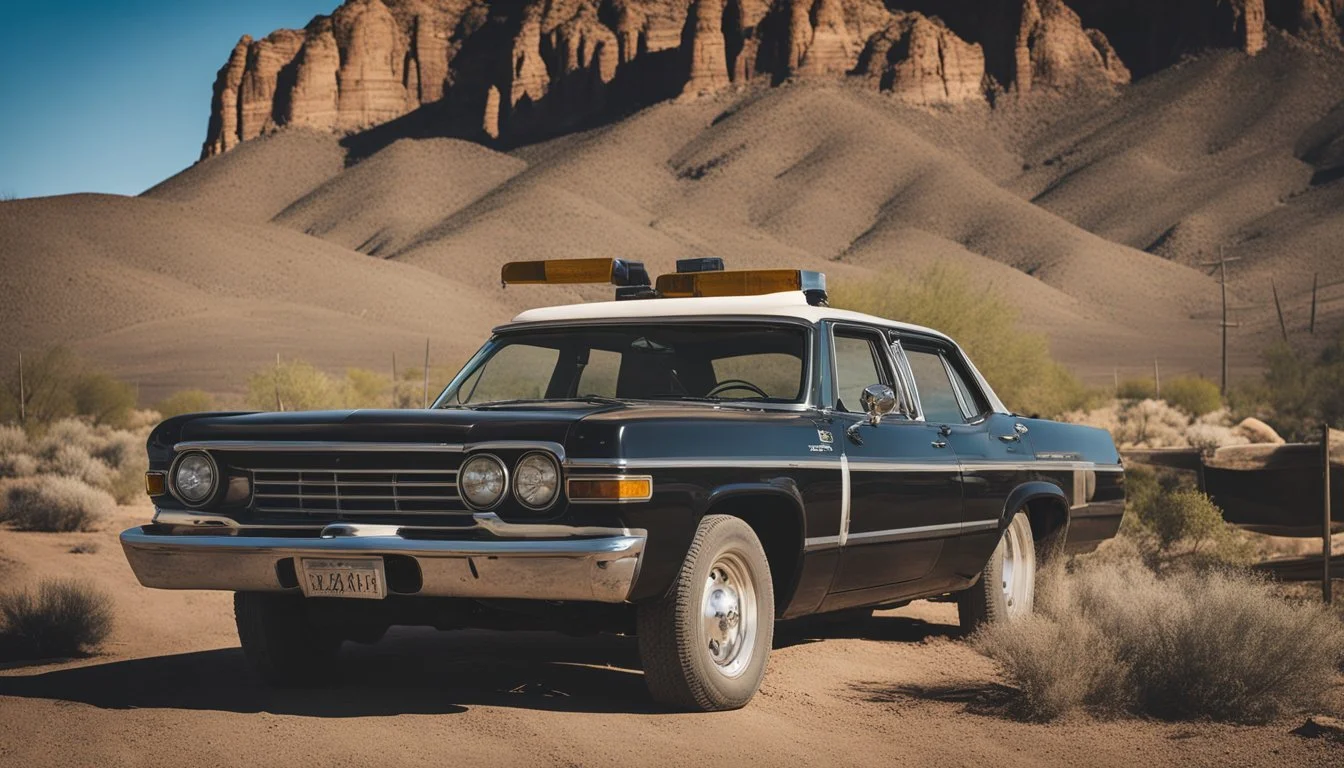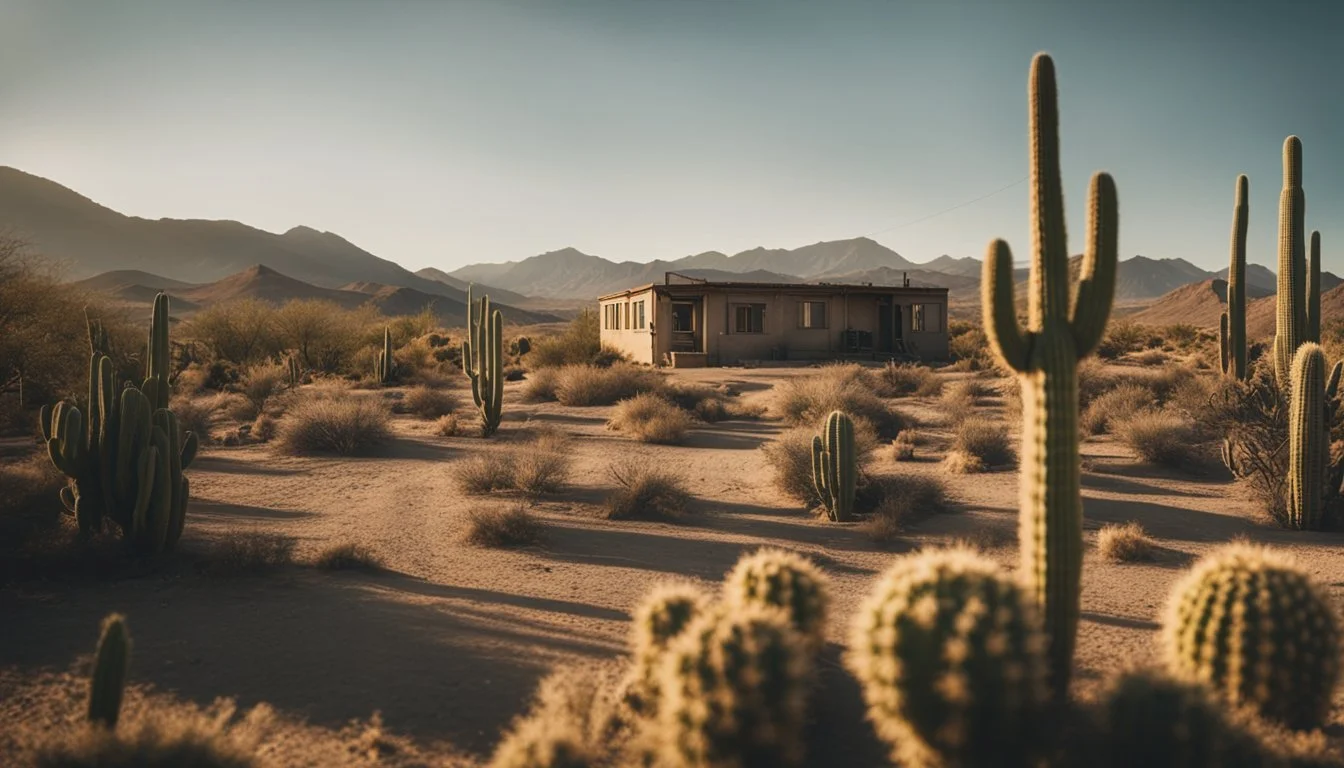7 True Crime Documentaries from Arizona You Can't Miss
Uncovering the Dark Side of the Grand Canyon State
Arizona, with its stunning landscapes and multifaceted communities, has a hidden side that is uncovered through gripping true crime documentaries. These films provide an intimate look into some of the state's most perplexing and heart-wrenching criminal cases.
This article explores seven must-watch true crime documentaries set in Arizona, offering viewers a chance to witness the investigation process, uncover the stories behind the headlines, and understand the impact on the communities involved. Each documentary sheds light on the efforts to solve these dark mysteries and bring justice to the victims and their families.
1) The Allison DuBois Case (2005)
Allison DuBois, born January 24, 1972, is an American author and self-proclaimed medium. She claims to have assisted U.S. law enforcement in solving crimes using her psychic abilities.
Her life and alleged contributions inspired the television series "Medium", which aired in 2005. The show dramatizes her experiences, blending elements of true crime with the supernatural.
Gary Schwartz, a researcher at the University of Arizona, tested DuBois's abilities. He asserted that his findings supported her claims of psychic prowess. However, these conclusions have been met with skepticism within the scientific community.
For more information on the series and its factual background, refer to the Wikipedia page for Medium.
2) The Baseline Killer
The Baseline Killer documentary offers an in-depth look at the terrifying crime spree of Mark Goudeau, a serial killer, rapist, and kidnapper active in the Phoenix metro area.
Goudeau's reign of terror spanned from August 2005 to June 2006. During this period, he was responsible for nine murders and numerous sexual assaults.
The documentary delves into the meticulous police investigation that ultimately led to Goudeau's arrest. On September 6, 2006, he was apprehended at his home.
The documentary also compares Goudeau's actions with those of other serial killers in Phoenix at the time, known collectively as the "Serial Shooters." This adds a broader context to the fear that haunted the city.
For more information, see the Wikipedia page.
3) The Phoenix Canal Murders
In the early 1990s, Phoenix was shaken by a series of brutal crimes along the Arizona Canal. Five young women went missing, and two of these cases resulted in their bodies being discovered, with clear signs of violence.
Bryan Patrick Miller, also known as the 'Zombie Hunter', became the primary suspect. His life encompassed fantastical costumes and alternate realities, which added a bizarre layer to the investigation.
The breakthrough in the case came in 2015 with advancements in genealogy data. This ultimately led to Miller’s arrest, after nearly 30 years since the murders occurred. The case remains a significant example of how technology can assist in solving cold cases.
For those interested in true crime documentaries, the story of The Phoenix Canal Murders offers a profound insight into the complexities of criminal investigations and the perseverance of law enforcement.
More Information on "The Phoenix Canal Murders" (2024).
4) The D.C. Ranch Kidnapping
In the affluent community of D.C. Ranch, Scottsdale, Arizona, a shocking kidnapping case took place that riveted the nation. This true crime documentary unravels the details of the 2017 abduction of a young heir from his family's estate.
The documentary scrutinizes the meticulous planning by the kidnappers, who demanded a large ransom.
Law enforcement's race against time to locate and rescue the victim forms a significant part of the narrative.
Interviews with the family, law enforcement officials, and experts provide a comprehensive view of the events. They reveal the emotional toll and the extensive investigative efforts involved in solving this high-profile case.
This gripping film not only highlights the specific incident but also delves into the broader implications for security in affluent neighborhoods.
For more information about the documentary, visit IMDb.
5) The Bisbee Murders
In the tranquil mining town of Bisbee, Arizona, a dark history unfolds in the documentary "Bisbee '17" (2018). This film dives into the Bisbee Deportation of 1917, when over 1,200 immigrant miners were forcibly removed by a deputized group. They were shipped to the desert, left to fend for themselves under dire conditions.
The documentary combines narrative elements with re-enactments, offering a haunting portrayal of this violent episode. Through interviews and personal stories, the film highlights the community's attempt to reconcile with its past.
Directed by Robert Greene, "Bisbee '17" provides a window into the struggles and the resilience of those affected. It showcases how the townspeople commemorate this centennial event, reviving poignant memories of their shared history.
More information about "Bisbee '17"
6) The Winnie Ruth Judd Case
Winnie Ruth Judd, a medical secretary in Phoenix, Arizona, gained notoriety in 1931. She was accused of murdering her friends Agnes Anne LeRoi and Hedvig Samuelson. This case captured public attention due to the gruesome nature of the crime.
The two victims were discovered when their bodies, one of which had been dismembered, were found in trunks that Judd transported from Phoenix to Los Angeles. Dubbed as "The Trunk Murderess," Judd's actions led to widespread media coverage.
Multiple documentaries and films have explored this case in detail. One notable documentary is "True Crime Documentary: Winnie Ruth Judd (The Trunk Murderess)" which delves into the events and aftermath. Another significant piece is the 2007 presentation by Arizona Stories.
For those interested in historical true crime stories, this case provides a gripping look into one of Arizona's most infamous criminal cases.
Find out more about the 2007 Arizona Stories documentary here.
7) The Murders of the Admans
The documentary, The Murders of the Admans (2023), dissects a chilling case that rocked a small town in Arizona. The Adman family was brutally murdered in their home, and the case went unsolved for years. Investigators faced numerous dead ends and challenges in unraveling the truth behind this horrific crime.
Through interviews with law enforcement, friends, and journalists, the film pieces together the events leading up to and following the murders. It explores the community's reaction and the impact on the surviving family members.
Viewers gain insight into the meticulous police work required to finally bring the killers to justice. The documentary highlights the persistence and dedication of detectives who never gave up on the case.
For more information, visit IMDb.
Arizona's True Crime Documentary Scene
Arizona has produced several compelling true crime documentaries. These films explore notable historical cases and feature contributions from key figures within the true crime genre.
Historical Significance
True crime documentaries in Arizona often focus on significant historical events.
One example is the Robert Fisher case, one of Arizona's most infamous, involving a man accused of killing his family before disappearing.
Another prominent subject is the plight of missing and murdered Indigenous women, highlighting systemic issues and lack of media coverage.
These documentaries not only provide gripping narratives but also shed light on important social and legal issues that have shaped Arizona's criminal history.
Notable Contributors
Several filmmakers and journalists have significantly contributed to Arizona's true crime documentary scene.
Briana Whitney and Peter Valencia from AZFamily have created influential works such as "True Crime Arizona," exploring various state-specific criminal cases.
Other notable contributors include independent filmmakers who delve into lesser-known but equally impactful cases, offering unique perspectives and enriching the genre.
These key figures bring depth and insight, helping the documentaries resonate deeply with their audiences.
Themes Explored in Arizona True Crime Documentaries
Arizona true crime documentaries tackle a range of intricate themes, shedding light on both the criminal activities and their broader societal impacts.
Crime and Justice
Arizona's true crime documentaries often highlight the complexities of the criminal justice system. They explore the investigation processes by law enforcement and the legal battles that follow. Cases involving missing Native women emphasize gaps in media coverage and justice system inequities.
The documentaries reveal the meticulous efforts by detectives and FBI agents to solve crimes, showcasing the challenges they face. Examples include high-profile heists and serial crimes that demand extensive investigative resources. The focus remains on the human stories behind each case, making the legal proceedings relatable and gripping.
Psychological Perspectives
Understanding the motives behind crimes is a critical aspect of Arizona's true crime documentaries. By delving into the minds of criminals, these narratives offer insights into the psychological triggers that lead to their actions. This perspective helps viewers grasp how personal histories, mental health issues, and environmental factors contribute to criminal behavior.
Interviews with psychologists and criminologists provide depth, illustrating how psychological profiles are constructed. The impact of trauma on both victims and perpetrators is explored, revealing the lasting repercussions on their lives. This approach fosters a nuanced understanding of crime beyond mere sensationalism.
Local Impact
The local communities in Arizona are deeply affected by the crimes documented in these films. The stories delve into the social and economic fallout, portraying how families and neighborhoods cope with the aftermath. The disappearance of Native women and significant heists reverberate through communities, leaving lasting marks.
True crime documentaries often highlight grassroots efforts to seek justice and community support systems. They show how ordinary citizens become advocates and how local law enforcement partners with the community to solve crimes. This local perspective brings a sense of urgency and realism to the stories, emphasizing their enduring effects on Arizona's societal fabric.
Cultural and Social Reflections
These documentaries shed light on deeply ingrained community issues and the impact of media overage. By focusing on how specific communities are portrayed and the manner in which media shapes public perception, they provide a profound understanding of the subjects at hand.
Representation of Communities
True crime documentaries from Arizona, such as "The Forgotten," highlight significant issues within Native communities, emphasizing the disappearance and murders of Indigenous women. These films often bring attention to the stark contrasts in how these cases are handled compared to others.
Additionally, the representation of minority communities in these films often underscores systemic challenges. Issues like resource allocation, law enforcement responsiveness, and institutional neglect are strongly reflected. Consequently, they reveal broader socio-economic disparities and institutional biases.
Such documentaries also often involve community members and leaders, offering a platform for marginalized voices to be heard, which can lead to increased public empathy and awareness.
Media Influence
Media portrayal plays a critical role in shaping how the public perceives crime and justice. Documentaries like "The Forgotten" bring critical cases to the forefront, influencing public interest and potentially impacting policy and investigative priorities.
The saturation of media coverage on specific crimes often highlights disparities. For example, Indigenous cases generally receive less media attention compared to other demographics, perpetuating inequalities.
Furthermore, these documentaries can either reinforce stereotypes or dispel myths, depending on their narrative and approach. By providing comprehensive and balanced views, they can educate viewers and promote more informed discourse about crime and justice in society.







